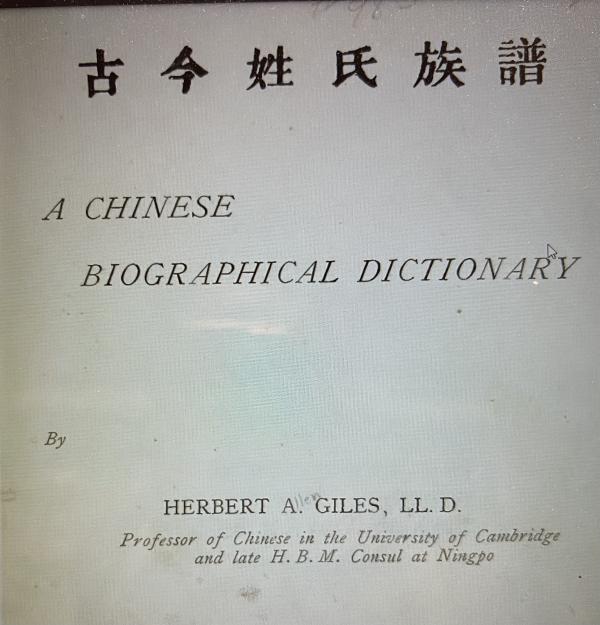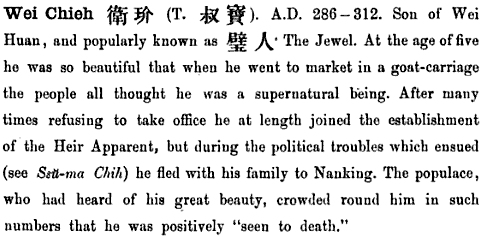2024-6-28
在早期美国人以搞笑为主的李普利《信不信由你》这本书中,有一篇是说中国古代四大美男子之一的卫玠(286-312)的:
Ripley's BelieveIt Or Not - 8 (Wei Chieh)THE MAN WHO WAS SEEN TO DEATH:WEI CHIEH, son of Wei Huan (286-312), was popularly known as "The Jewel" on account of his great beauty. At the age of five his handsome face and graceful form caused the populace to regard him as a supernatural being. He joined the establishment of the Heir-Apparent of China, but during political troubles it was necessary for him to flee to the city of Nanking where he was exposed to the populace who crowded around him in such numbers and stared so hard that he was actually "seen to death."
这个故事最早来自1898年英国剑桥大学汉学家翟理斯(Herbert Allen Giles,1845–1935)的《古今姓氏族谱》(A Chinese Biographical Dictionary)一书:

Herbert A Giles (M.A.,I.I.,D) (1845-1935) |

| 
|
翟里斯曾任前驻中国外交官,前后达二十五年,是一位真正著作等身的大学问家,做了很多开创性的挖掘和探索工作。
而这个故事,最早来自于《世说新语》中的容止篇:
《晋书》卫玠传中说:
古人玉璧不分,和氏璧就又称和氏玉。而原来所谓的璧人,也原来就是玉人的意思了。
|
